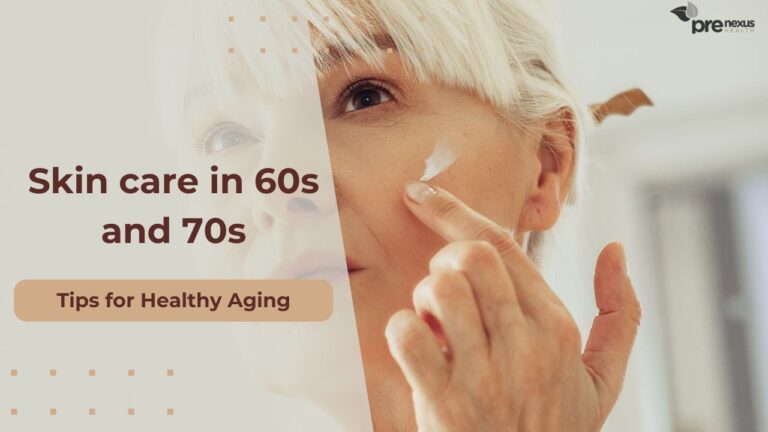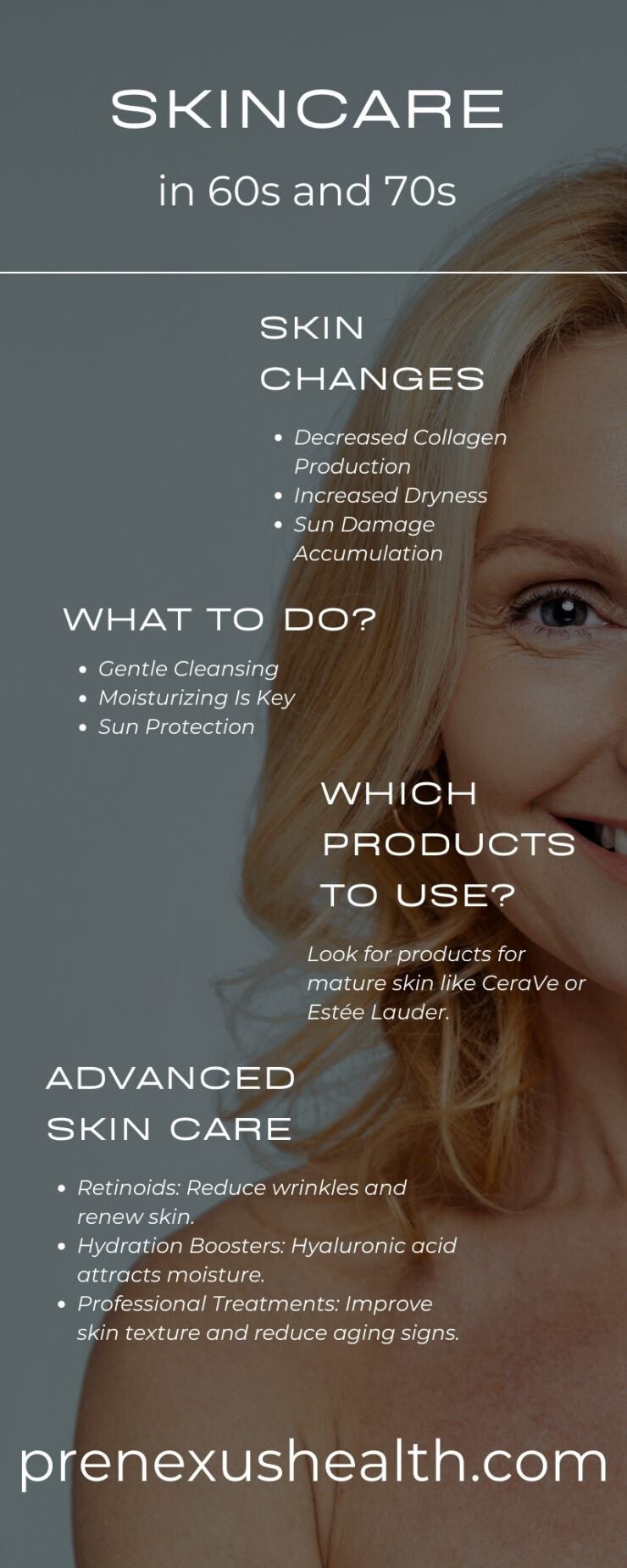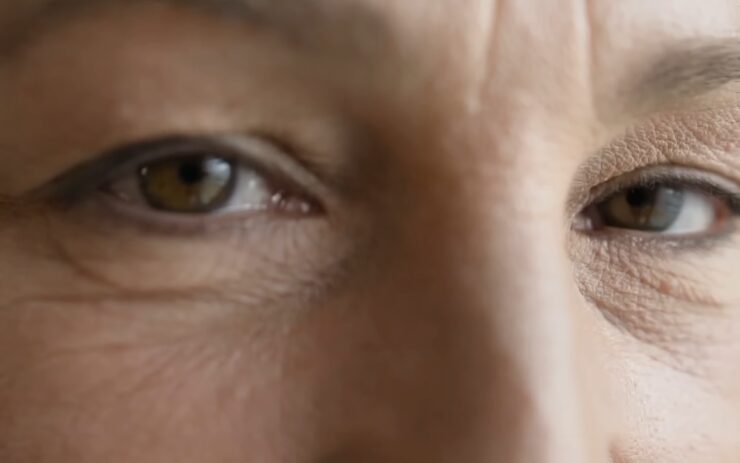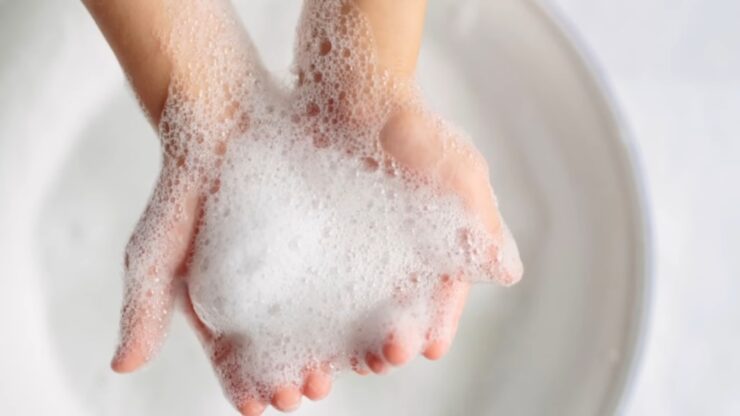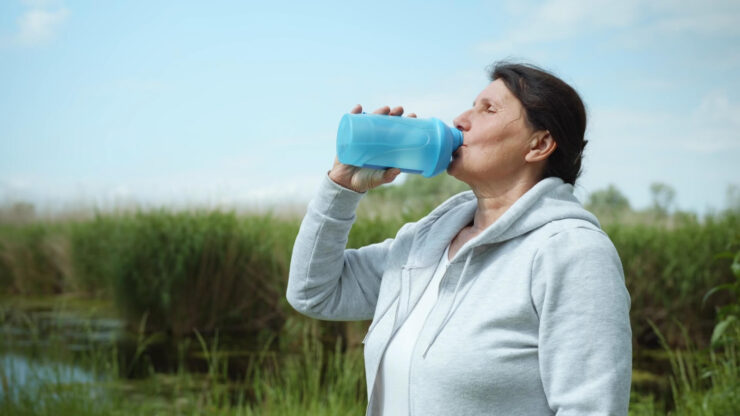Over the decades, our skin has undergone significant changes. Entering your 60s and 70s, you might notice more pronounced wrinkles, dryness, and a change in skin texture. But this doesn’t mean you should give up on achieving healthy, vibrant skin.
All you have to do is adapt your skincare routine to meet your skin’s evolving needs. Today, I’ll give you some practical and effective ways to care for your skin during these golden years, ensuring it remains healthy and radiant.
Skin Changes in Your 60s and 70s
1. Decreased Collagen Production
As we age, our bodies produce less collagen, the protein responsible for skin’s firmness and elasticity. This reduction begins as early as our 20s and becomes more pronounced in our 60s and 70s. The decrease in collagen leads to the formation of wrinkles and sagging skin, as the skin’s structural support diminishes.
2. Increased Dryness
Mature skin experiences a significant reduction in natural oil production, leading to increased dryness. Sebaceous glands, which are responsible for oil secretion, become less active, making it harder to retain moisture. This dryness can cause the skin to appear rough and can lead to discomfort or itching.
3. Sun Damage Accumulation
As explained by the Skin Cancer Foundation, years of exposure to the sun’s ultraviolet (UV) rays can lead to cumulative damage. This manifests as age spots, also known as liver spots or solar lentigines, and contributes to the breakdown of collagen, accelerating skin aging.
Long-term sun exposure is also a leading cause of skin cancer, including basal cell carcinoma, squamous cell carcinoma, and melanoma.
What to Do?
Apply Gentle Cleansing
Using mild, hydrating cleansers is crucial for mature skin to avoid stripping it of essential natural oils. Look for products labeled “gentle” or “hydrating,” and avoid cleansers with harsh detergents like sodium lauryl sulfate (SLS), which can exacerbate dryness and irritation.
Moisturizing Is Key
Rich moisturizers play a vital role in replenishing moisture and supporting the skin’s barrier function. Ingredients like hyaluronic acid, glycerin, and ceramides can help attract and lock in moisture, while oils and butters can provide a protective layer to prevent water loss.
Use Sun Protection
According to Shreya Shanbhag, sunscreens protect the skin by absorbing, blocking, or scattering UV radiation. Continuous protection against UV radiation is essential to prevent further sun damage. Use broad-spectrum sunscreens with an SPF of 30 or higher, and consider wearing protective clothing and seeking shade during peak sunlight hours.
Sunscreen is not just for sunny days; UV rays can penetrate clouds and reflect off surfaces like water and snow, making daily application essential.
Which Products to Use?
For mature skin, look for products specifically formulated to address dryness, loss of elasticity, and sun damage. Budget-friendly options include brands like CeraVe and Neutrogena, which offer moisturizers and sunscreens suitable for sensitive skin.
For those willing to invest in high-end products, lines like Estée Lauder and SK-II provide targeted treatments with advanced anti-aging ingredients.
Advanced Skin Care Strategies
| Category | Description | Key Points |
| Retinoids | Derivatives of vitamin A known for promoting skin renewal and reducing the appearance of wrinkles. | – Increase cell turnover- Stimulate collagen production- Start with low concentration, gradually increase |
| Hydration Boosters | Ingredients like hyaluronic acid attract moisture from the environment to the skin, maintaining a plump and hydrated appearance. | – Hyaluronic acid, glycerin, propylene glycol- Attract and bind moisture to the skin |
| Professional Treatments | Treatments like light therapy, chemical peels, and microdermabrasion offer dramatic results in skin texture improvement and aging signs reduction. | – Improve skin texture- Reduce age spots- Stimulate collagen production- Consult with professionals |
Lifestyle Factors that Affect Skin Health
Nutrition
A diet rich in antioxidants, vitamins, and minerals can significantly impact skin health. Foods high in vitamins C and E, omega-3 fatty acids, and antioxidants can help protect the skin from damage and support collagen production. Incorporate a variety of fruits, vegetables, lean proteins, and healthy fats into your diet.
Water, Water, and Some More Water!
Drinking plenty of water is essential for maintaining skin hydration from the inside out. Adequate hydration helps to keep the skin moist and can improve its overall appearance and texture. Aim for at least 8 glasses of water a day, and consider incorporating hydrating foods like cucumbers, tomatoes, and watermelon into your diet.
Sleep
You need quality sleep for your skin to regenerate and repair. During sleep, the body’s hydration rebalances, and the skin recovers moisture, while excess water is processed for removal. Poor sleep can lead to increased signs of aging and diminished skin barrier function. Aim for 7-9 hours of sleep per night.
Stress Management
According to Harvard Health Publishing, chronic stress can have a negative impact on skin health, contributing to inflammation and exacerbating conditions like psoriasis, eczema, and acne. Managing stress through yoga, meditation, exercise, or hobbies can help mitigate these effects and promote overall well-being.
FAQs
I’m a dermatologist who loves studying and treating skin (obviously). I went to medical school and chose dermatology because I wanted to help people with skin problems. I’m dedicated to helping people feel better about their skin (and in it).

